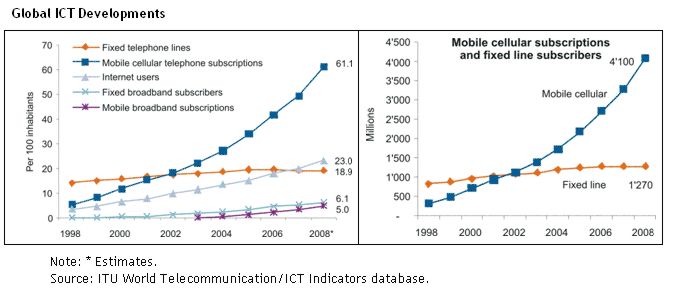Computer vs Google
The other evening I was inspired to see what the top three search results were in Google for the word Computer since I expected it to be generic enough to not be branded yet specific in such a way that all languages referring to it would be identifying the exact same concept in their word. To make it interesting I first stopped by the Babel Fish translation service and from the twelve non-English languages I translated the word computer into that language in the native character set.
Then where possible I went to the Google landing page for that country and executed the search by pasting in the translated word. Eg, for Japan I went to www.google.co.jp and entered “コンピュータ” which is what Babel Fish told me was the Japanese translation for the word.
What follows are my results followed by some observations.
In Dutch: “computer”
- http://www.mycom.nl/
- http://www.computertotaal.nl/
- http://nl.wikipedia.org/wiki/Computer
In French: “ordinateur”
- http://fr.wikipedia.org/wiki/Ordinateur
- http://www.ordinateur.com/
- http://www.dicofr.com/cgi-bin/n.pl/dicofr/definition/20010101003926
In German: “computer”
- http://www.computerbild.de/
- http://de.wikipedia.org/wiki/Computer
- http://www.atelco.de/
In Greek: “υπολογιστής”
- http://el.wikipedia.org/wiki/%CE%97%CE%BB%CE%B5%CE%BA%CF%84%CF%81%CE%BF%CE%BD%CE%B9%CE%BA%CF%8C%CF%82_%CF%85%CF%80%CE%BF%CE%BB%CE%BF%CE%B3%CE%B9%CF%83%CF%84%CE%AE%CF%82
- http://en.wiktionary.org/wiki/%CF%85%CF%80%CE%BF%CE%BB%CE%BF%CE%B3%CE%B9%CF%83%CF%84%CE%AE%CF%82
- http://www.komvos.edu.gr/periodiko/default.htm
In Italian: “calcolatore”
- http://en.wiktionary.org/wiki/calcolatore
- http://www.freeonline.org/calcolatrice_dtml
- http://it.wikipedia.org/wiki/Computer
In Japanese: “コンピュータ”
- http://ja.wikipedia.org/wiki/%E3%82%B3%E3%83%B3%E3%83%94%E3%83%A5%E3%83%BC%E3%82%BF
- http://www.dell.co.jp/
- http://www.apple.com/jp/
In Korean: “컴퓨터”
- http://ko.wikipedia.org/wiki/%EC%BB%B4%ED%93%A8%ED%84%B0
- http://www.compuzone.co.kr/
- http://www.trigem.co.kr/
In Portuguese: “computador”
- http://pt.wikipedia.org/wiki/Computador
- http://en.wiktionary.org/wiki/computador
- http://www.dell.com.br/
In Russian: “компьютер”
- http://ru.wikipedia.org/wiki/%D0%9A%D0%BE%D0%BC%D0%BF%D1%8C%D1%8E%D1%82%D0%B5%D1%80
- http://www.sigmacomputers.ru/
- http://www.depo.ru/
In Spanish: “computadora”
- http://es.wikipedia.org/wiki/Computadora
- http://www.monografias.com/trabajos15/computadoras/computadoras.shtml
- http://www.alegsa.com.ar/Dic/computadora.php
In Chinese-Simplified: “计算机”
- http://baike.baidu.com/view/3314.htm
- http://product.enet.com.cn/price/plist3.shtml
- http://www.enet.com.cn/computer/
In Chinese-Traditional: “計算機”
- http://home.educities.edu.tw/tky999/top/top-right/tool/FinanceTools/calculator.htm
- http://www.acm.org
- http://zh.wikipedia.org/wiki/%E9%87%8F%E5%AD%90%E8%AE%A1%E7%AE%97%E6%9C%BA
And last but not least, in English: “computer”
- http://en.wikipedia.org/wiki/Computer
- http://www.dell.com/
- http://www.apple.com/
On a lark I dug into the English results to see where IBM showed up since I would think that they would be synonymous with the word computer to some degree… After lots of clicking I found it. At the bottom of page #57 in my results: http://www.research.ibm.com/compsci/
This kind of blew me away so I quickly did a search for the word “server” in English as well and found IBM at the bottom of page #9 with a link to: http://www.ibm.com/software/webservers/appserv/was/
While I was not surprised to see Wikipedia frequently showing up as the #1 result in most countries/languages I did expect to see more academic material represented. I was surprised to see how well Dell and Apple were represented. I was also taken aback by the Chinese Traditional #1 which is a bland page with a giant basic math calculator square in the middle of the page.
Also, looking at this from a global SEO frame of reference, I think this nicely highlights that when you are doing global SEO analysis, it can pay to develop localized strategies. For instance it would seem to me that Russia, Korea and Spain might be low hanging fruit for an aggressive campaign to capture visibility on the word computer.
Tell me what you think about these results.
Cheers!
 Bryan Needs a Title for His Home Page
Bryan Needs a Title for His Home Page
